EU commissioner gives PM questionnaire
EU Enlargement Commissioner Stefan Fule has given the EC questionnaire to Serbian Prime Minister Mirko Cvetković in Belgrade this Wednesday.
Wednesday, 24.11.2010.
10:42

EU Enlargement Commissioner Stefan Fule has given the EC questionnaire to Serbian Prime Minister Mirko Cvetkovic in Belgrade this Wednesday. Providing answers to the questionnaire is one of the conditions for EU candidacy status. EU commissioner gives PM questionnaire Cvetkovic stated on Wednesday that Serbia will answer the European Commission's (EC) questionnaire by the end of January 2011, while Fuele assessed that Serbia is in a good position on the road to the EU. "The government's aim is for Serbia to obtain the EU candidate status by the end of 2011 and to determine the date for the beginning of negotiations," Cvetkovic stated. He announced that the Serbian government will adopt the action plan, that is the strategy for answering the questions in ten to fifteen days. "We are well prepared and we will begin working on the answers as early as today when the meeting of the EU Integrations Council will be held," Cvetkovic stressed. Serbia is in a good position on the EU pathway, Fule said, adding that full cooperation with the ICTY remains an important element in Serbia's EU integration. Fule stressed that the handing of the questionnaire is a significant step for Serbia, since the EU member states have shown strong interest in Serbia's EU accession, as well as because the questionnaire will give the country the chance to carry out the necessary reforms. Fule assessed that Serbia has made progress in regional cooperation, as well as in the fight against corruption and organized crime, adding that the EU wants to see progress in all areas as it is aimed at the Serbian citizens's welfare. The EU enlargement commissioner met with Serbian President Boris Tadic late on Tuesday and he is scheduled to have meetings with Justice Minister Snezana Malovic, parliament Speaker Slavica Djukic-Dejanovic and political parties' leaders today. The questionnaire which will be delivered to the Serbian authorities contains 2,483 questions and subquestions. Ahead of his visit to Belgrade Fule said that the EC would gain insight into Serbia's readiness to begin pre-accession negotiations with the EU based on answers to the questionnaire. (FoNet) Content of EC questionnaire The EC questionnaire contains questions concerning every segment of society. Annexes refer to political criteria, among which are “democracy and rule of law”, “respect for human rights”, “regional issues and international obligations”. Economic criteria are “macroeconomic data”, “social-economic data”, “social protection system”. Chapters contained in the questionnaire are also “free flow of goods”, “freedom of labor mobility”, “free flow of capital”, “public procurement”, “intellectual property law”, “competition policy”. There are also “judiciary and fundamental rights”, “judiciary, freedom and security”, “science and research” and “education and culture”. Once Serbia has answered the questions and returned the questionnaire to the EC, the institution would begin a process of issuing its opinion which takes about a year. Director of the Center for New Policy (CNP) NGO Vladimir Todoric told B92 that it was most important to set December of 2011 as a date when we would fulfill obligations which were necessary in order for Serbia to receive candidate status. “I expect debate on European integration to be guided by very concrete questions, to which the government must offer clear legal and system answers, immediately after the questionnaire has been handed,” he pointed out. “This isn’t only about 2,000, 3,000 or 4,000 questions, it’s important to make a systematic shift primarily regarding ten key conditions which the European Commission formulated and which concern independence of regulatory bodies, judiciary reform, blank resignation letters, economic reforms and especially combat against monopoly,” Todoric explained. The enlargement commissioner has assessed that he is not coming to Belgrade to bring more reform work for the citizens and administration but that he is brining “a clear message of hope“. Serbian Interior Minister Ivica Dacic says that Belgrade authorities are well-prepared in order not to be surprised by any of the questions. According to him, Serbia is willing to address the issue of fake asylum seekers which arose after visa requirements had been lifted. “We are ready for readmission, i.e. for them to return to Serbia very quickly. We'll step up control at our borders but I think that it is also necessary for the countries to step up control at entrance to Schengen area as well,“ Dacic explained. “I think that number of those who call themselves ‘asylum seekers’, who are false in our opinion, will be reduced. The largest number of them are Roma and Albanians from southern Serbia,” the interior minister added.
EU commissioner gives PM questionnaire
Cvetković stated on Wednesday that Serbia will answer the European Commission's (EC) questionnaire by the end of January 2011, while Fuele assessed that Serbia is in a good position on the road to the EU."The government's aim is for Serbia to obtain the EU candidate status by the end of 2011 and to determine the date for the beginning of negotiations," Cvetković stated.
He announced that the Serbian government will adopt the action plan, that is the strategy for answering the questions in ten to fifteen days.
"We are well prepared and we will begin working on the answers as early as today when the meeting of the EU Integrations Council will be held," Cvetković stressed.
Serbia is in a good position on the EU pathway, Fule said, adding that full cooperation with the ICTY remains an important element in Serbia's EU integration.
Fule stressed that the handing of the questionnaire is a significant step for Serbia, since the EU member states have shown strong interest in Serbia's EU accession, as well as because the questionnaire will give the country the chance to carry out the necessary reforms.
Fule assessed that Serbia has made progress in regional cooperation, as well as in the fight against corruption and organized crime, adding that the EU wants to see progress in all areas as it is aimed at the Serbian citizens's welfare.
The EU enlargement commissioner met with Serbian President Boris Tadić late on Tuesday and he is scheduled to have meetings with Justice Minister Snežana Malović, parliament Speaker Slavica Đukić-Dejanović and political parties' leaders today.
The questionnaire which will be delivered to the Serbian authorities contains 2,483 questions and subquestions.
Ahead of his visit to Belgrade Fule said that the EC would gain insight into Serbia's readiness to begin pre-accession negotiations with the EU based on answers to the questionnaire.
Content of EC questionnaire
The EC questionnaire contains questions concerning every segment of society.Annexes refer to political criteria, among which are “democracy and rule of law”, “respect for human rights”, “regional issues and international obligations”.
Economic criteria are “macroeconomic data”, “social-economic data”, “social protection system”.
Chapters contained in the questionnaire are also “free flow of goods”, “freedom of labor mobility”, “free flow of capital”, “public procurement”, “intellectual property law”, “competition policy”.
There are also “judiciary and fundamental rights”, “judiciary, freedom and security”, “science and research” and “education and culture”.
Once Serbia has answered the questions and returned the questionnaire to the EC, the institution would begin a process of issuing its opinion which takes about a year.
Director of the Center for New Policy (CNP) NGO Vladimir Todorić told B92 that it was most important to set December of 2011 as a date when we would fulfill obligations which were necessary in order for Serbia to receive candidate status.
“I expect debate on European integration to be guided by very concrete questions, to which the government must offer clear legal and system answers, immediately after the questionnaire has been handed,” he pointed out.
“This isn’t only about 2,000, 3,000 or 4,000 questions, it’s important to make a systematic shift primarily regarding ten key conditions which the European Commission formulated and which concern independence of regulatory bodies, judiciary reform, blank resignation letters, economic reforms and especially combat against monopoly,” Todorić explained.
The enlargement commissioner has assessed that he is not coming to Belgrade to bring more reform work for the citizens and administration but that he is brining “a clear message of hope“.
Serbian Interior Minister Ivica Dačić says that Belgrade authorities are well-prepared in order not to be surprised by any of the questions.
According to him, Serbia is willing to address the issue of fake asylum seekers which arose after visa requirements had been lifted.
“We are ready for readmission, i.e. for them to return to Serbia very quickly. We'll step up control at our borders but I think that it is also necessary for the countries to step up control at entrance to Schengen area as well,“ Dačić explained.
“I think that number of those who call themselves ‘asylum seekers’, who are false in our opinion, will be reduced. The largest number of them are Roma and Albanians from southern Serbia,” the interior minister added.















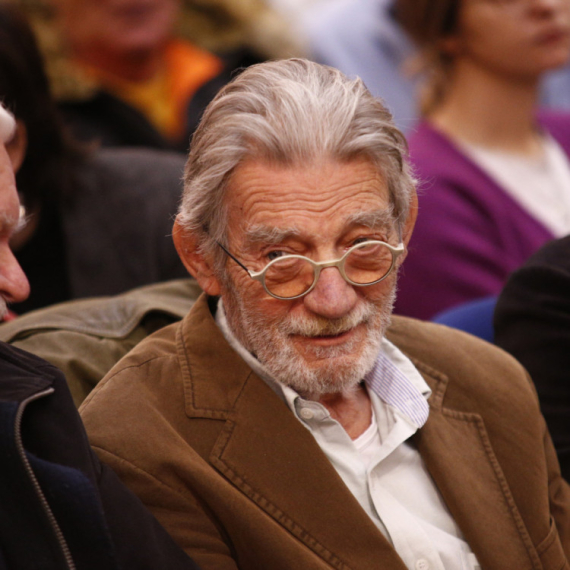
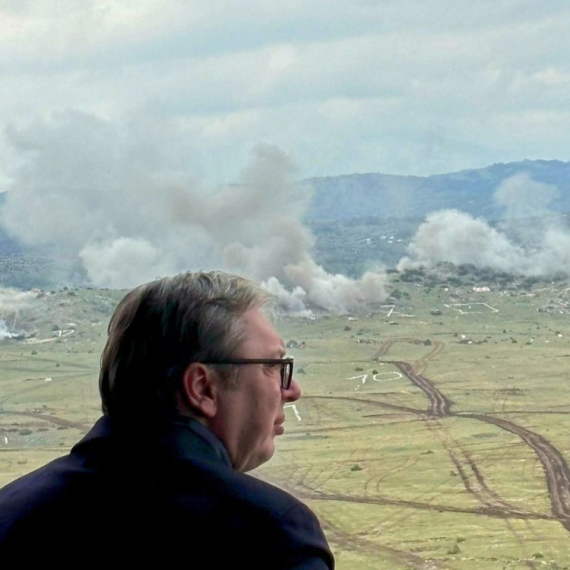
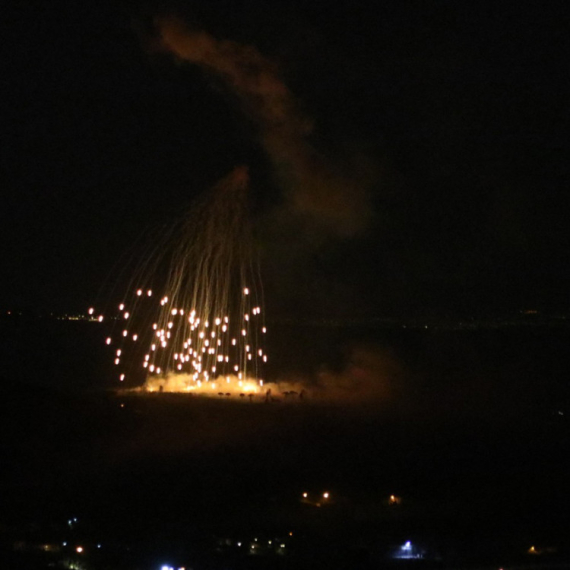
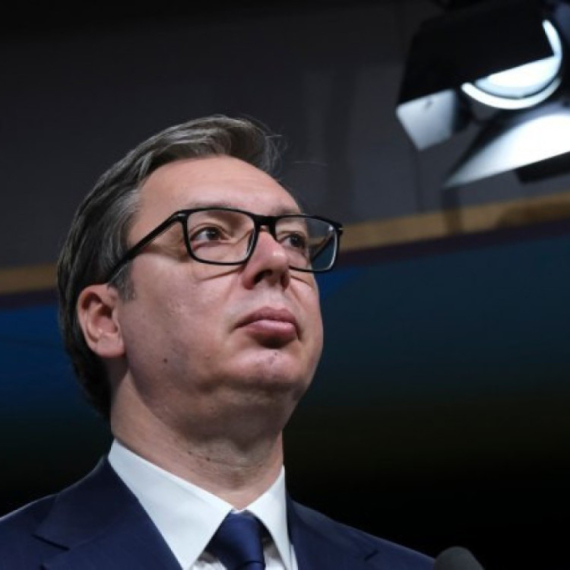

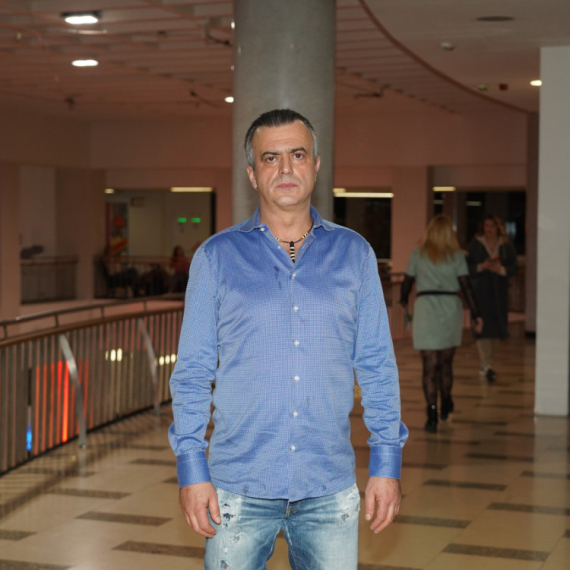





































Komentari 1
Pogledaj komentare